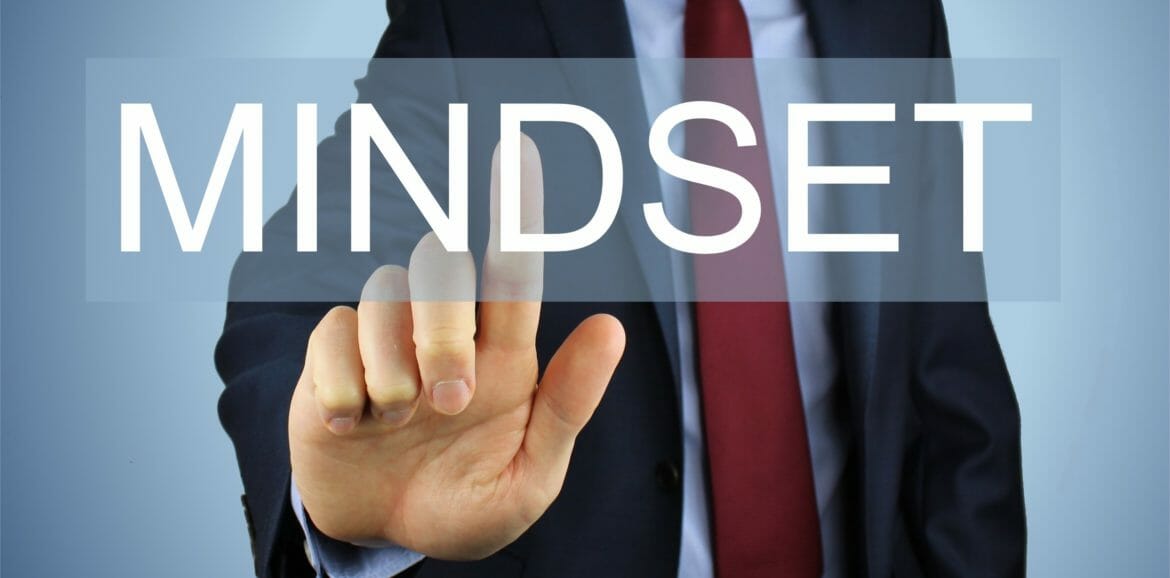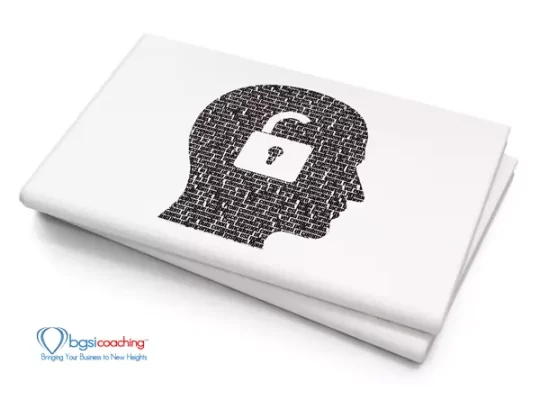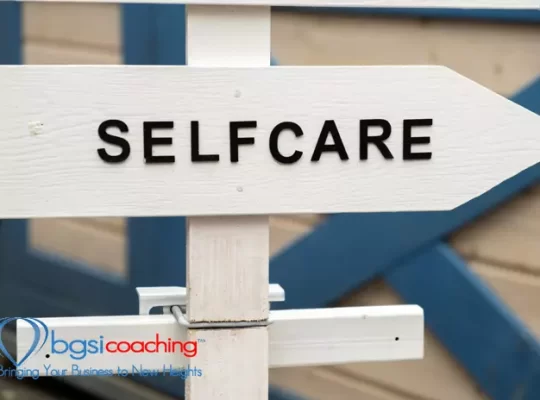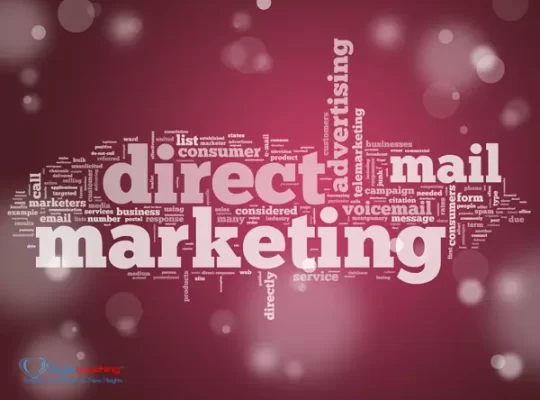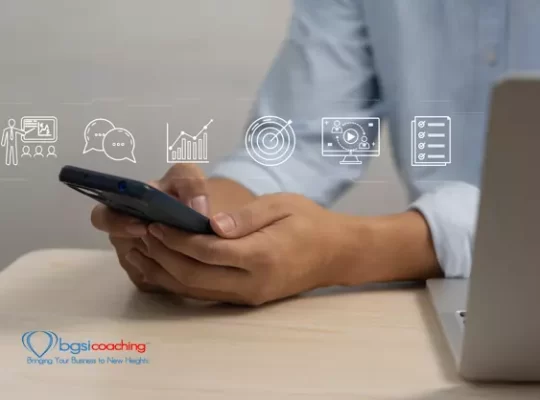How would you define “mindset?” Would you be looking at the word as “being present” or as “how would you view any type of situation that you may find yourself in?”
For my guest this week, I interview former NBC’s “The Apprentice” Dan Brody, who views mindset as the latter and uses an example of a shoe company that sends two of its executives out to a market to determine whether they should attempt to grow there or not. One executive sees the glass as half-empty and says that nobody is wearing running shoes and why bother? The other says, nobody is wearing running shoes and it’s an incredible opportunity!
Depending on how you are viewing a situation will make a huge impact on the way that you go about figuring out what you want to do and how you can succeed or not in business, as in life.
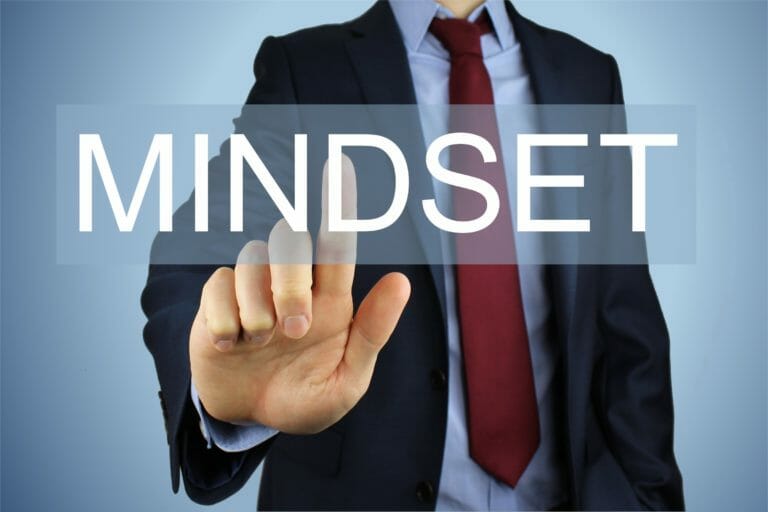
Life & business intersect in many places. After all, we cannot have a business without looking at the human component of business.
This podcast with Jennifer R Glass, CEO of Business Growth Strategies International & BGSICoaching.com is all about the meaning of life and business & the interesting ways they intersect. The show is for entrepreneurs and aspiring entrepreneurs on the search for what makes people successful and how to get there themselves.
Listen in as Jennifer & her guests dive deep into what makes people tick & how they make their businesses work for the betterment of others.
How would you define “mindset?” Would you be looking at the word as “being present” or as “how would you view any type of situation that you may find yourself in?”
For my guest this week, former NBC’s “The Apprentice” Dan Brody, he views mindset as the latter and uses an example of a shoe company that sends two of its executives out to a market to determine whether they should attempt to grow there or not. One executive sees the glass as half-empty and says that nobody is wearing running shoes and why bother? The other says, nobody is wearing running shoes and it’s an incredible opportunity!
Depending on how you are viewing a situation will make a huge impact on the way that you go about figuring out what you want to do and how you can succeed or not in business, as in life.
About Dan: Daniel Brody is an experienced and effective marketing pioneer, with a unique understanding of the value being added through compelling digital media. He is an accomplished C-Suite manager of broadcast digital campaigns that have built calculable brand awareness and sales. Dan is also himself, a seasoned filmmaker with International Film Festival selections and he understands first hand, that effective communication with consumers, speaks directly to the bottom line.
As a founding partner of the digital platform Farbinder, Dan has witnessed the irrefutable power and effectiveness of merging a digital video message with a well-executed digital media advertising campaign. The confluence of artful messaging and science-based analytics, offers smart business owners an undeniable advantage in reaching their ideal consumer, in the right venue at the right time and with the right message.
Dan has also taught an extensive evergreen course on how to identify the right franchise business opportunity to over 1,800 enrolled students (and counting) as well as spoken before numerous audiences to share insight into developing a motivating business culture with best practices.
Connect with Dan on LinkedIn, YouTube, or visit him on the web at https://www.emometricmedia.com/
#mindset #resourcefulness #theapprentice #nbc #farbinder #digitalmarketing #digitalmedia #video #digitalcampaign #brandawareness #communication #filmmaker #advertising #franchise #bestpractices
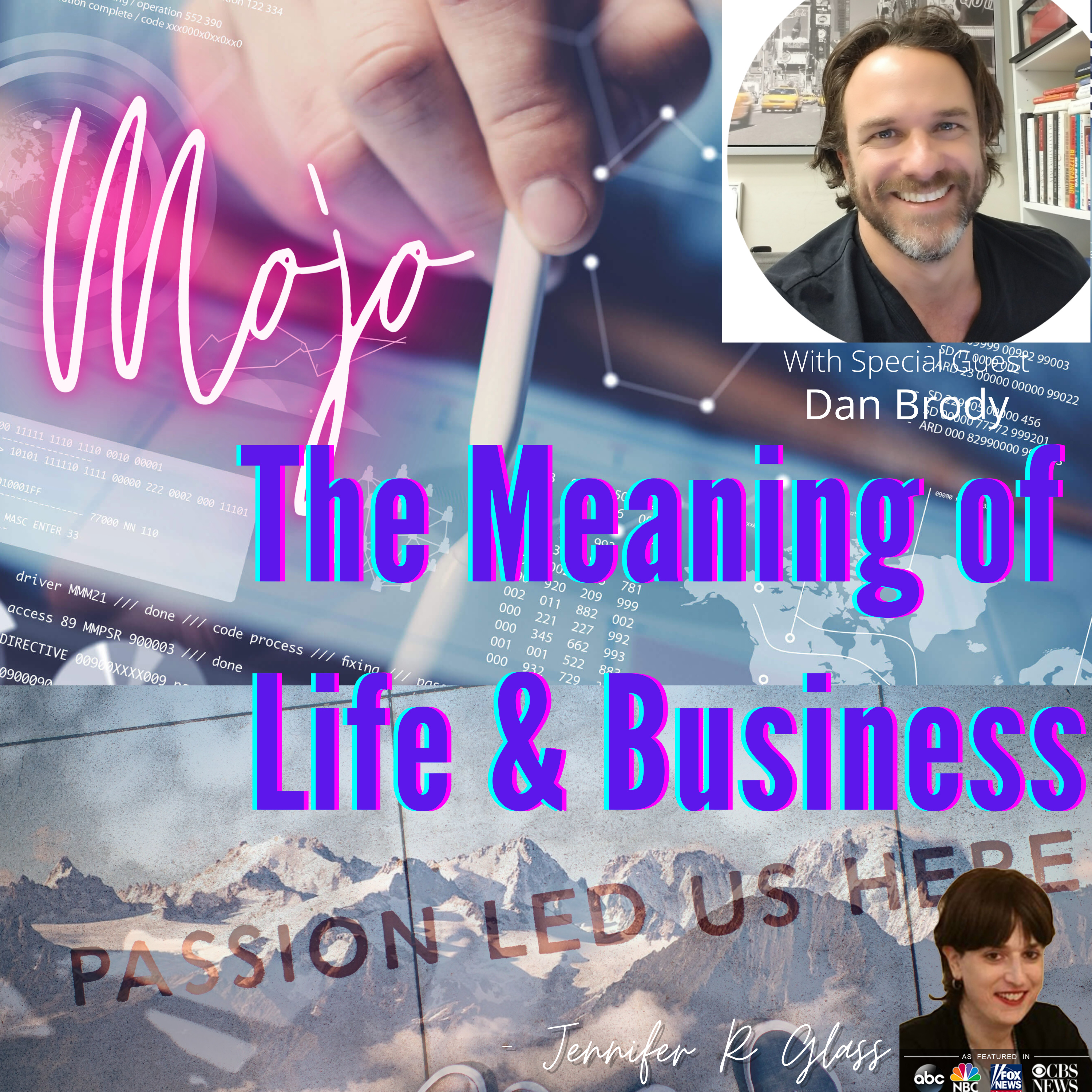
Transcript (auto-generated; may contain errors)
Welcome to another episode of MOJO: The Meaning of Life & Business.
On today’s program, we are going to be talking about mindset and how that relates to your consumer’s mindset, your mindset, and the business’s mindset in terms of what you’re doing and how that’s going to ultimately succeed. In what you’re trying to get your consumers to do with you or your clients.
And so I’ve got a really incredible guest today. His name is Daniel Brody. But before I bring Dan on, let me tell you a little bit about Dan. So Dan is an experienced and effective marketing pioneer with unique understanding of the value added through compelling digital media. He’s an accomplished C-suite manager at broadcast digital campaigns to build calculable brand awareness and setup.
He understands firsthand that effective communication with consumers speaks directly to the bottom line. Dan has taught an extensive evergreen course on how to identify the right franchise business opportunity to over 1800 enrolled students and counting as well as spoken for numerous audiences to sharp insight, into developing a motivating business culture and best practices.
And for those of you that don’t know, Dan has also been featured on “The Apprentice” which is a really incredible opportunity for Dan and got you tremendous exposure.
Welcome to the show.
Thank you. Thank you. It’s always awkward to be sitting through, someone, you know, sharing about your history. But I, I appreciate your doing that and yeah, it’s been, it’s been a wild ride.
You know, entrepreneurial business is. And as I’m sure, you know, right. You’ve started companies company. So yeah, it’s been a great ride, a lot of ups, a lot of downs, but that’s all part of the excitement. So before we jump into the topic of mindset, then let’s talk about your time on The Apprentice.
So this was back in 2005, 2006, when you were on the show – it goes back a little while.
So I was coming home from my job and I was listening to the radio and on the radio, they had an ad for for the next season of the apprentice. And if you wanted to try out for, for the apprentice, you should show up at eight o’clock in the morning, the following day.
And I had not given it much thought prior to them. I had never even watched the show and I get home and I think to myself, you know, what, if I’m gonna do this, I’m gonna make sure that I’m like the first one on. And in order to do that, I figured why wait till eight o’clock in the morning, I’m going to go tonight the night before, and I’m going to camp out in New York city.
I was younger then and, and I’m going to get online and be the first person online. I showed up in New York city in front of the building. At 11 o’clock at night, I was the 13th person there already. So I’m 11 o’clock the night prior. And there’s already called people. And but I prepared had done some backpacking after college.
So I brought a 10 with me and sure enough, it did rain a little bit that night by the next morning at eight o’clock in the morning, there was well over a thousand people all the way down, wrapping around the block. So, and not every one of them even got in. Because, you know, there’s only, there’s only so much bandwidth with all the producers, but that started the experience and it was, it was an arduous process to you know, they gotta make sure that you’re going to be interesting that you are capable.
And there were a series of interviews. They even at one point flew me out, along with. I’d say about 25 other potential contestants put us up in a hotel for a week. And it was a battery of debates and exams and interviews literally. Prior to finding out that, you know, made it on the show. Yeah. So what were some of the lessons that you learned from being on the program?
Yeah. One of the interesting things that, that I discovered was the world in which at that time, you know, I had a regular job and I hadn’t tried a few things entrepreneurially with, you know, with some success in some and some not, but what this opened it up to me was the value of relationships.
Which I haven’t really fully appreciated before. But also understanding that that feeling and you’ve probably felt that I’m sure you’ve felt it where you’re, you’re kind of, you know, the best way to describe it is if you stand straight and you lean forward that moment, when you have to take a step or you’re going to fall, right, you have to take a step.
You’re going to fall. You have to get comfortable with. Feeling of, I don’t want to say it’s uncertainty, but with that feeling of forward forward motion, because that is what being successful as an entrepreneur feels like in some ways, it’s that unknown a little bit. It’s a little scary, but that’s almost, that’s kind of what growth is.
And very often, even if you’re a successful entrepreneur, We have a tendency to avoid that uncomfortable moment, but you know, I’ve seen other people describe it. They describe it as sort of like that growth spurt or that feeling of like there’s so much going on. But when you’re in that, when you put yourself into that position, a lot of times what’ll happen.
Not for everybody, but a lot of times it happens is sort of that you kick in to that. You’re in that zone and you almost operate at a higher level at a faster level because your brain has all the stimuli coming at you. And, you know, I I’m, I’m sort of describing something that’s sounds theoretical.
But the reality is, is it you’ll have the exact same feeling and I’ve gone through this when you hit a growth spurt and you need to hire people and you’re like, well, how am I going to have the time to hire them? Train them, maintain these customers. It’s a lot to do. But you just, your brain starts to give you a little bit quicker.
You start being more resourceful, I guess, is what it is. It’s forced resourcefulness. Does that make sense? Absolutely. And that’s a great segue into our topic of mindset and having the mindset to get their resourcefulness in terms of where we’re going. Let me ask you before we talk about mindset, how do you define the concept of mindset?
That’s a good question. I guess mindset is how you view how you view any situation, right? Because you take two different people and you present them with the same scenario, the same situation. And they both approach it in different ways. A perfect story. Perfect example. Right. Someone told me this a long time ago.
It was a story, right? Two major shoe brands sent their research and development guy out to to an area in Africa, central Africa, back in like the sixties, when there hadn’t been much exploration. The one guy calls up his, you know, calls up headquarters in New York city and says, it’s a waste of time out here.
Nobody’s wearing sneakers, nobody’s wearing running shoes. There’s just no need for it. The other guy calls back and he says, send out a team. Let’s open up an office today. It’s amazing. Nobody wear sneakers here. Nobody’s wearing running shoes. Yes. Two different people, two different mindsets. One of them sees opportunity.
The other one doesn’t and we see this, you see this every day, you know, you’ll see this around holidays too, especially, right. You have, you could have two relatives say the same thing to you. One of them you’re like, oh, that’s interesting. The other one, you were just angry as hell about whatever. They said, two people said the same thing.
So it’s mindset, it’s your mindset. So you can see. And that’s, and the reason I use that example about relatives, because it’s so true is also because. It shows you very viscerally that your mindset can make all the difference because you see how your mindset makes you feel about those two people. They both said the same thing now.
Yes. You might say that, you know, when Jane said it, she meant something. And when John said he meant something different, like it doesn’t make a difference. You are internalizing it differently. The same thing can be had can be said for when you go ahead and How you approach a challenge or how you approach an opportunity.
So, you know, the other interesting thing is also as you talk about mindset and to different people in the holidays as costs. So am I going to take it. Or am I going to double down? Right? Because you look at how some people are during the holidays. And some people say, well, the world is going on vacation.
I’m going to go on vacation too. And then other entrepreneurs look at it. Everyone else is going on vacation. This is a perfect opportunity for me to go fishing. Bigger pool right now that I can actually get more people. And so you start looking at the mindset different from that perspective as well.
Sure. It’s your outlook, right? And that plays a huge hand in being in a position to actually meet your clients. Where they are and when they are, for sure. So let’s look at how marketing talks to the mindset and where the client’s mindset is as it relates to that. So as you’re developing these digital marketing campaigns, And you’re trying to get into the mindset, the thoughts zone as we call it, of where your clients are, what are some of the things that you’ve found have worked or really well, it’s a good question.
So the first thing I’ll say is that what’s interesting and that I’ve found is that a lot of clients, not the clients, customers, but a lot of clients are experts in their domains. But automatically assume that means they are experts in understanding the clients. What was the term used zone? The “thought zone” of the great term thought zone of the customer.
And you shouldn’t make that assumption. I don’t see why anyone would make this assumption, but let’s, let’s give a perfect example. You are a heart surgeon, right. You know how to fix the home. Does that mean that you understand how people feel about not feeling well? Emotionally happens to be most surgeons, wonderful people.
I know a lot, not so good when it comes to the emotional element of connecting with their patient in that way, in the emotional way. So no matter what you’re selling, don’t automatically assume that just because you thoroughly understand glasses, that you thoroughly understand how someone feels.
About having near or far vision. Being in your side here as far as know, or how they feel about, you know, and the empowerment of having those classes, just because you are a, an optometrist you know, the answer is, is that be humble enough to understand that there’s a different view for your product and for how they feel about your product?
Okay. So one of the things that we do and is it important for anyone to do is to look at your car at your product, see how users or customers use your product and then speak to the customers. A lot of people say, you know, go out of the building, right? Speak to customers about how they feel and not just about your product, but about what your product solves about the problem that your product solves.
It’s actually removing you one step from your product, because if you think about it, Their feelings about how they view the problem is what they’re dealing with before they even consider your product. Right. So my concern about finding something to wear first it’s, what’s going to draw me to that particular item, right?
How, what am I considering? What am I thinking about? So if I’m selling pizza, for instance, I’m thinking about my customer, my customer, if my customer wants to eat something and I’m just looking for my customer because based on what they want to eat, and I’m not taking into consideration their concerns about, you know, fat content or or lactose intolerance, I’m just giving an example.
If I’m not considering all those other elements that go into their decision as to what to eat. And I’m just thinking about, they want to eat, they’ll come to. I’m missing a huge swath of potential customers. And I might even be speaking and spending my time speaking to customers that are the wrong customer.
And that also goes to, you know, just another example of a piece of store. Are you talking to people that are even awake during the times that you’re open? Right. You know, one of the things that I know that there’s a pizza restaurant, a pizza place in Hackensack, New Jersey that realized, wait a second, let’s not be stupid.
They open up at four in the afternoon and they close at four in the morning. Now most people would think, are they stupid? But when all of these other pizza places take into account or don’t take into account is the fact that you have all of these people coming off for work at the police station and the hospitals and everything else and many.
And so where are they going for their dinner if they want pizza. And Steve only plays open. There absolutely. Is there Market Dominating Position that says we’re the only one. After midnight, everyone else’s closing 8, 9, 10. O’clock the limit comes. That becomes a marketing point for them, nobody, but it’s a perfect example.
How many pizza stores do you know where someone goes ahead and says, yeah, we have the greatest pizza, but do you know that we’re open from nine to seven every day? No one can. No, one’s no one’s going to go. Wow. That’s so unique. But here becomes a marketing point. Same thing with insomnia cookies, right?
Insomnia Cookies is actually a cookie chain that takes that exact mentality. If they put a name in their name, their cookie chain, that in many locations is open to like 2, 3, 4 in the morning, depending upon what your location for that exact point, they happened to set themselves up in busy areas, busy tourist areas near college universities.
And they probably do more sales of cookies in those wee hours of the morning than they do during regular conventional business hours. Yeah. The markets are in position to really becomes important in that sense. So as we look again at mindset, What are some of the things that we as entrepreneurs need to start thinking about in terms of mindset, in terms of how to get us in the right mindset.
So we reached the right people. And their mindset to good point. So you probably heard this before, right? So there’s Jordan Belfor, there’s a movie made about him. He was the “Wolf of Wall Street.” So after he went to jail and came out, he would run these mostly overseas.
He’d run these sales courses. One interesting thing that he’s becoming well known for is he would take out a pen and he would hand it to somebody who’d say, sell me this. And the person would say this pen is amazing as I take it away from this as now, you don’t know what to sell next person.
And what he was getting at was he didn’t want you to try to sell a pen. He wanted you to talk to your customer and say, What this pen can do for you or what you need this pen can do. So I’m not pointing him out to be, you know, the beacon of, of of direction when it comes to dealing with customers.
Although he’s obviously very talented. What I’m saying is, is that it’s important to identify the mindset of your customer and make sure that it’s aligned with your mindset. So when we’re talking about sales anyway, right? So your mindset should be. I have a product I’m convinced this product is great, but even more importantly, this product serves a valuable purpose because I believe that people and it’s not just me, but I believe that when people feel they have a purpose, it’s a lot easier for you to be a little bit tougher on, on a push, have a little more confidence about making that effort or making that call.
When you think that maybe someone’s going to hang up on. ’cause, you’re not just selling something for selfish reasons or for, you know, the value of that object or that service you believe in its purpose. And you’re selling the purpose, but easier to get behind selling a purpose than it is selling a product.
So it will help you. It helps you as a salesperson also helps you think more about your product as to how it’s helping other people. And then those other people will, will there’ll be a connection. It’ll resonate with them better. So not only does it kind of give you the self-confidence, but it will also create this unseen connection with the consumer.
And anyone else you’re working with because you have that feeling of. And then kind of gets everybody on the same, on the same page. So I think that viewing the mindset in terms of what you’re doing, what finding what is the purpose? Absolutely. And then again goes, as I say, all the time, it’s the benefit of the better.
Not the features too many people. Like you were just saying, you take the pen and many of the pen while it ranged beautifully, who cares? Right. A million pens do the exact same thing. If you say though, that it’s going to allow me to actually write, you’re starting to get to the point. Yeah. It’s, you’re, you’re finding out what the, what the customer wants.
And so if you think about it and I got this from one of my mentors if you think about it car, right? So many pieces of the car are there. Right? Don’t tell me about the spark plugs, right? Unless I look like a mechanic, the spark plugs mean nothing personally, for me, I don’t even know where they are in the car.
Right. But you tell me is going to get me from point a to point. And it’s going to have the right number of cup holders. So my kids are not going to argue about the space and the right, whatever it’s going to make a difference. We didn’t know that is to talk to you is to find out from you what your interests are, because you might say, like you said, you met a couple of.
For someone person, like I just need a couple of them for my coffee, another person that be like, look, I need five cup holders, you know, because I need two. And then each of my kids needs one and then I want one for the passenger and it becomes a big deal. Right? So understanding the customer is tremendous, is important and understanding your own purpose.
So it’s really twofold. It’s understanding the customer’s need and it’s understanding your own purpose. And once you really understand your own purpose, It will by itself, home as communicate to the customer. And I remember, I think Simon Sineck has a Ted talk about the why finding your why. Right. And a really cool example that he gives is Dell computers, great computers, but if Dell computers came out with a phone tomorrow, would you run out and say, I gotta get the latest Dell computer phone.
The answer is probably not apple. Computers was always a computer company. Was kind of, but for some reason, everybody wants an iPhone and apple. I’ve why, because their, why was not weird going to be a great computer company. It’s, we’re going to be a great, innovative technology company. So when they come out with like a bicycle helmet that is linked to your phone, you want that because it’s not a computer company, it’s a, you know, their why is different.
So if you know your one. And you can see how that works automatically with apple, right? It affects you and me there. Why that they’ve really honed in on affects how we view their company. So if you identify your why, and it just exudes from you, or it just comes out of you because you’re living it, it’s going to affect how your consumer views you.
And then of course you understand that. And then we’ll Disney. Company’s exact same. You look at exactly what they do and it’s not just the movies or the parks or what have you. It’s the whole experience. Absolutely. And so people are constantly used to, well, how can I even have a birthday party in the park and have a business training?
Absolutely. There’s all of these different ways that the Walt Disney company has found to really connect. It’s not just a simple entertainment company as really a whole bunch of it runs the gamut. It’s right. It’s sort of a it’s, it’s almost, I’m the truth is, I don’t know, off the top of my head, maybe we could look into it, but it’s, I wonder what their overall mission, maybe it’s like a, you know, an entertainment element, but they do so much more than that.
And even though these things on paper, it might seem like they don’t connect. They really do connect because. The way in which they provide excellent service in that. You know, in that you can say like fairy tale, theme, park inbox. Really does cross over to how they can teach, providing excellent service in whatever business or corporation.
And they actually do. They have training bootcamps, you know, we’d go along or two week long boot camps in Disney world for large corporations to train them on how it has excellent customer service. And Walt Disney actually has. That you can Google, even if you wanted to just Google the Walt Disney marketing handbook and Dan Kennedy constantly talks about this.
For those of you that don’t know Dan Kennedy. He’s basically the godfather of copywriting wrote so many books. If you haven’t yet looked into his books, definitely take a look guaranteed. You’re going to find a lot of information from there. So then as we wrap up our conversation today tell me a little bit about your journey.
I mean, we briefly discussed it, but let’s kind of. I’ll give you the the quick rundown. So I’ve had an eclectic business background that is for sure. Right out of college, I went to work for a large nursing home and assisted living company, which was. The division of the Marriott hotel champion. A lot of people don’t realize this, but Marriott had about 150 nursing homes and assisted living facilities in this country.
They don’t have any, any more. They’re completely in the hotel industry now. I worked for that for that company for a little while I had had my administrator’s license. I went to, I got my MBA. And and a joint degree from Mount Sinai medical school, not an MD degree, but but a busy, you know, a business, both business degree and healthcare business degree.
And then I, I worked in the fashion industry for a little while. I won’t take you on the full journey of a segue, how I went from A to B. I did dope prior to that. I own a cafe in the city. I then turned that cafe into a wholesale bakery par-baked and a cookie dough business, where we were delivering par-baked and cookie dough to grocery stores across the tri-state here.
I sold that company. That was good. Get out of that business, not an easy business, the bakery business or the wholesale business. But I got a lot of stories from that, but that was, that was something I did got into, like I said, the fashion company and fashion industry had a line of. Accessories that sold in everywhere from depending upon the, there were different lines, higher end, lower end sold in Cohoes and Burlington and Cato department stores across the country.
So the higher line of goods to places like Bloomingdale’s did that for a little for awhile. And I’ve had a lot of different, a lot of different businesses that started a couple tech small tech start. Everything kind of as much as these adventures don’t seem like they had any connection, they really did seamlessly flow from one to the next, which was interesting because there are so you know they don’t seem like they would but it was, it’s been, it’s been a very interesting career.
It’s been a great career and which is kind of. As really brought me to what I do now, which is focusing on helping businesses, all different types of businesses to really speak to their customers and to understand not only how to market to them, but where to market to them and what to market to them.
Because in each one, if there’s one thing that was a common thread through everything that I’ve done, it was understanding what the product. Y consumer cares. So whether that’s cookie doughs selling in a, in a chain across New York state, or it’s going into, you know, to pitch Sports Authority back when it existed on a line of athletic wear.
It really came down to communicating to the customer.
And where do you see yourself for the next three years?
Where do I see myself in the next few years? That’s excellent. So right now we are working on. That would help small and mid-sized businesses. And there are a lot of them in this country. And of course, across the world, a product that will help customers have a little bit more control.
Maybe, small business owners have a little bit more control over their conversation and their communication with their with their customer. It’s a product we’re working on. It’s a. It’s essentially a way, you know, it’s an alternative to emails and alternative to some of the other platforms that people use.
And the idea is really to enable, to empower small business owners to connect with their community. So that’s something. Hopefully we’ll it’s it’s in the works and how can people find out more? But, so to find out more about me, you can check me out on LinkedIn. I’m also have a small, but building we’re going to be putting a little bit more effort into.
The Dan Brody project on YouTube, it’s something we’re going to be building up. We’ll be doing things like we’re doing quick little, two-minute videos vignettes on, you know, how to approach a customer – the things you should look at and make sure are in your marketing plan or all of this is free.
Of course. And then I’m also going to be going over some of the business books, a lot of the business books that I’ve read over the years and doing a quick little review. To share some of the tidbits about the book, but at the same time, maybe to give you some insight as to maybe this is about for you.
Sounds great. Thank you so much, Dan, for being my guest. And as we wrap up, we covered so much on today’s program from looking at knowing exactly what is in your client’s thought zone.
So, remember that as you’re trying to deal with what you’re trying to offer, there’s a statistic from UC San Diego that we absorb 34 gigabytes of data on a daily basis. And if you think about that from the moment you woke up this morning, Whenever you’re listening to us this morning, the first thing you either had the dog barking, you had the garbage truck rolling by, you had your alarm going off. You had some sort of other stimuli that woke you up. That was the very first bit of information that hit you. And then your coffee maker and the paper and all of these other things that you may be dealing with. All of those pieces are additional data points that your brain is absorbing. But the human brain has evolved over time that we’ve put up walls in front of us. And the only way to break through that wall is to properly message your client in their thoughts.
And the more that you can identify, what is keeping them up at night, the better you’re going to. And the mindset aspect of where you are and where your clients are, are going to be extremely important in helping to identify what is keeping them up at night. No, your average ours know what it is. That’s like I said, keeping them up at night and you’re going to be a lot more successful.
And on that note, here’s to your success.
This has been another episode of MOJO: The Meaning of Life & Business podcast. Thank you so much for listening.
About Dan: Daniel Brody is an experienced and effective marketing pioneer, with a unique understanding of the value being added through compelling digital media. He is an accomplished C-Suite manager of broadcast digital campaigns that have built calculable brand awareness and sales. Dan is also himself, a seasoned filmmaker with International Film Festival selections and he understands first hand, that effective communication with consumers, speaks directly to the bottom line.
As a founding partner of the digital platform Farbinder, Dan has witnessed the irrefutable power and effectiveness of merging a digital video message with a well-executed digital media advertising campaign. The confluence of artful messaging and science-based analytics, offers smart business owners an undeniable advantage in reaching their ideal consumer, in the right venue at the right time and with the right message.
Dan has also taught an extensive evergreen course on how to identify the right franchise business opportunity to over 1,800 enrolled students (and counting) as well as spoken before numerous audiences to share insight into developing a motivating business culture with best practices.
Connect with Dan on LinkedIn, YouTube, or visit him on the web at https://www.emometricmedia.com/

